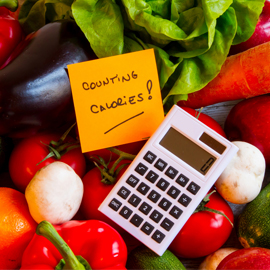The Very Low Calorie Diet versus the Low Calorie Diet
June 2011
 One of the most important points to remember when setting out on the journey of weight loss is that the calories your body takes in as fuel must be burned off so that they are not stored in your body. Calories are stored as fat, and the more calories stored the more fat you have in your body. Burning off calories efficiently allows us to lose weight and become healthier.
One of the most important points to remember when setting out on the journey of weight loss is that the calories your body takes in as fuel must be burned off so that they are not stored in your body. Calories are stored as fat, and the more calories stored the more fat you have in your body. Burning off calories efficiently allows us to lose weight and become healthier.
There are several diet plans to look at that can successfully help you to lose weight. Some people may choose a weight loss plan that can be done without supervision, while others may choose a medical weight loss plan that is undertaken with the guidance of a doctor or health practitioner.
Low calories diet plans are very common and are usually done without medical supervision. Calorie intake can range from twelve hundred to fifteen hundred calories per day for men and women. This type of weight loss plan will reduce calorie intake so that the body is able to burn calories that are stored as fat as well as the calories that are taken in on a daily basis. These diets usually consist of normal food that may be purchased at a grocery store, but may include prepackaged meals that are high in nutrition and lower in calories. As a goal weight is reached, the prepackaged meals are replaced with healthier home cooked items that will continue through the maintenance phase and hopefully the long term so that the goal weight is maintained.
Very low calorie diet plans are medical weight loss programs in which two meals are normally replaced with very low calorie drinks, shakes and bars. Under the guidance of a physician, participants who are obese and morbidly obese are able to kick start their weight loss to gain control of their weight. Very low calories diets usually consist of only about eight hundred calories per day and are not recommended for long term use. Participants must take regular multivitamins to avoid malnutrition and can experience side effect such as fatigue, nausea and diarrhea.
Whichever method of weight loss you choose, it is important to remember that it is not just the number of calories taken in that may be at blame for weight gain. Limiting calories while eating higher fat or high sugar foods is not a healthy diet and may cause additional weight gain or other health issues. Be smart and choose the right plan for you that will have the best nutritional value and weight loss results.

